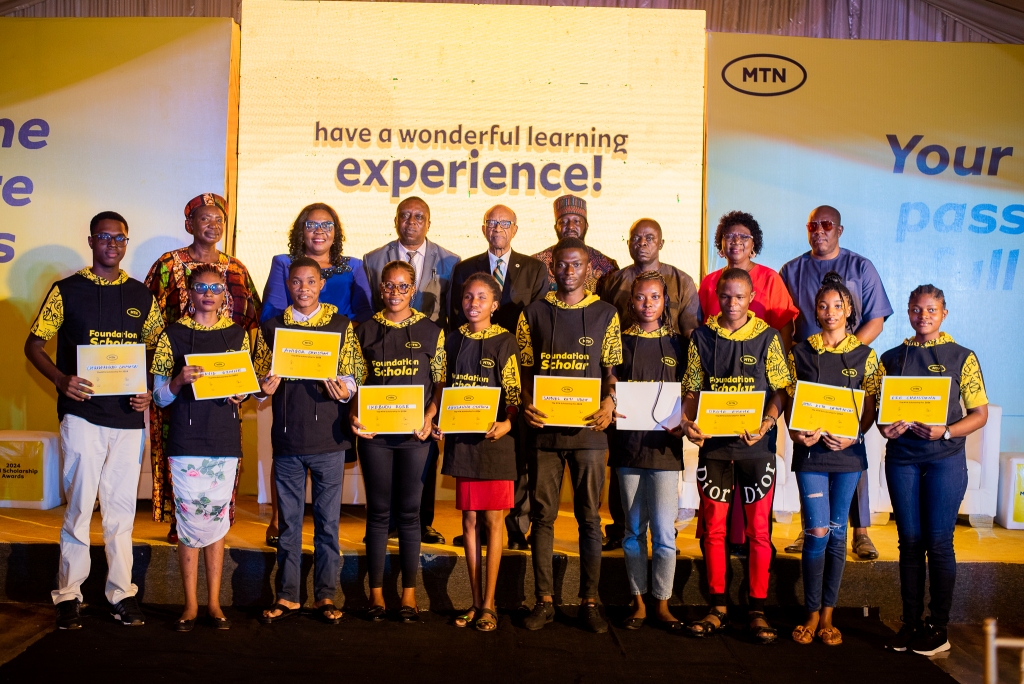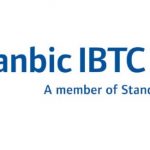Education
Sustainable EdTech and the Environment: What We Can Do Now

While climate change has been at the forefront of global discussions recently, the conversations around sustainable edtech are not mainstream. Nonetheless, the effects of climate change can have a direct impact on education and need more attention in the education sector.
Concern Worldwide US describes climate change as one of the biggest threats to education. It is an apt description because extreme weather conditions result in the destruction of school buildings and other infrastructures that the school system relies on.
Even when schools are not directly affected by extreme weather conditions, school buildings are still useful for housing others displaced by these weather conditions. Also, the impact of climate change on a family’s disposable income hampers the parents’ ability to afford an education for their children.
Hence, the Climate Risk Index Report by UNICEF asserted that the climate crisis is beyond an environmental issue but also a child’s rights crisis, as children are more vulnerable to the impacts of climate change in society.
In view of the impact of climate change on education, it is imperative that we take a cursory look at climate change from the standpoint of education, technology, and sustainability.
Exploring the Environmental Footprint of Sustainable EdTech
With the climate change discourse in full gear, industries have taken a closer look at their contributions to the global climate crisis. The digital technology industry, of which the edtech space is a subset, is proffering solutions to the global climate crisis.
With digital technology having the capacity to reduce about 15 per cent of greenhouse gas emissions, the World Economic Forum argues that the sector wields the most power to stabilize the temperatures around the globe.
A glance at the edtech space shows that edtech companies are not only bringing energy-saving software to schools but also introducing other cutting-edge learning and teaching enablements that ensure that students and educators stay in touch and perform school tasks from wherever they are. Hence, they are cutting down on the use of gas, which translates to the reduction of emissions.
However, not all edtech solutions are sustainable, which brings us to the issue of sustainable edtech. Schools and other educational institutions need to reassess the energy efficiency of their ICT units and understand the ratio of emissions generated for every student. In making buying decisions, schools should opt for sustainability in edtech solutions.
On the part of edtech companies, it is only imperative that sustainability becomes a major concern. Edtechs can achieve sustainability by reducing the consumption of energy to its barest minimum, using eco-friendly edtech solutions, and ensuring proper disposal of e-waste.
Sustainable EdTech and Reduction of Carbon Emissions in Education in Africa
According to Statista, the African continent has cumulatively emitted 48 billion metric tons of carbon between 1884 and 2020. While it is the lowest in comparison to other continents of the world, it still points to the need for reduced carbon emissions to save the planet.
Leveraging green edtech in schools across the continent wields power to reduce carbon emissions. Hence, edtech companies can use one stone to kill two birds – enhancing the quality of education while reducing the impact on the environment.
Implementing Green EdTech for Students and Educators
Schools that switch from a paper-based storage system to cloud-based storage with the use of sustainable education technology will cut their energy consumption drastically. By utilizing education technology, schools can cut down on paper-based learning, embrace online learning, and communicate with parents and other stakeholders through electronic devices.
They can also save time and energy spent while commuting. Google Meet, Zoom, and other video conferencing tools help to achieve communication between students and education without jeopardizing the face-to-face experience with in-person meetings.
Also, educators can redirect the funds saved on paper into further enriching the learning experience of students, which will, in turn, enhance the overall performance of students in the school.
Apart from facilitating school processes, it will serve as a vital learning curve for students, especially about the global climate crisis and the need to conserve energy. Students can learn valuable lessons about the impact of their actions and use of resources on the environment
Best Practices for Sustainable EdTech
The increased use of technology in education comes with an associated increased exposure to security threats. However, cybersecurity tools are rising to the occasion and helping schools navigate these issues. Hence, a sustainable edtech solution will take cybersecurity seriously and stay up-to-date with its cybersecurity protection.
Edtechs can also leverage artificial intelligence in the bid to remain sustainable and combat climate change. While AI can be used in edtech solutions to create personalized learning for students, it can also come in handy for helping a school gain green status. Integrating AI into edtech solutions can help schools and other educational institutions keep track of their carbon emissions and find ways to cut down on these emissions from power plants, etc.
In making edtech more sustainable, edtech solutions embracing augmented and virtual reality will give students a learning experience that does not take them outside the school walls. Hence, the school can conserve energy and reduce its carbon footprint.
Envisioning the Future of Sustainable EdTech in Africa
The future unicorns of the edtech space in Africa will be the ones that have moved beyond edtech to sustainable edtech. Indeed, climate change is a real-world problem, and edtechs also have a role to play in the grand scheme of things.
In Africa, the consequences of climate change are direr. According to the African Development Bank report, the continent is the most vulnerable to the effects of climate change, even though its emissions are the lowest. Hence, tackling climate change with edtech tools will give birth to more market opportunities in the continent.
With the increasing number of edtechs in Africa, especially the edtech in Nigeria, it is only reasonable that edtech companies transition fully into sustainable education technology, combat climate change and help drive the continent closer to achieving its sustainable development goals.
Schools in Nigeria can start by adopting a sustainable school management system in Nigeria. Doing so will reduce carbon emissions while improving collaboration among all stakeholders.
Realistically, the edtechs in Africa cannot achieve sustainability overnight. The industry is already dealing with the challenges of being innovative in a rapidly changing environment fraught with infrastructural and governmental issues. However, sustainability is the future of education technology in Nigeria and the next big thing for edtech companies.
Education
Firm Unveils New Educational Game AfriTrivia in Lagos for African Children

By Aduragbemi Omiyale
An organisation known as Jesin Games on Monday, April 7, 2025, launched a new educational game, AfriTrivia, in Lagos.
The trivial game was designed to promote facts about the African continent, improve awareness about Africa, even among Africans themselves, and to better connect the African Diaspora from all over the world to their continent of origin, according to the chairman advisory board of Jesin Games, Professor Soji Adelaja.
It was stated that AfriTrivia would amuse and challenge everyone with a host of intriguing questions for beginners and experts.
The game will also be launched in Marrakech at the African Heritage Concert and Award Ceremony this weekend, while that of United States launch will come up in few weeks to come.
“Many Africans know little or nothing about the rest of their continent, and many people in the diaspora have little opportunity to learn what they lack about their continent because they are left relying on books written by historians or other means of learning not presented by Africans,” Mr Adelaja stated.
He described AfriTrivia as more than just a trivia game but an educational tool that can be used to “discover all the cultural and historical diversity in Africa through different topics.”
The chief executive of Jesin Games, Mr John Esin, on his part, said, “AfriTrivia is a game that challenges you to test your knowledge on some of the most interesting categories like Quotations, History, Sports and Entertainment, Arts and Culture, Government and Politics, and People and Places about some of the historical sites such as the Rock-Hewn Churches of Lalibela, to The Great Pyramids of Giza.
“It is meant for families to play together, friends to play with each other, and classrooms to become “creative centres of learning about our world.”
A former Governor of Cross Rivers State, Mr Donald Duke, while speaking at the unveiling of the product, praised the organisation for the initiative.
“AfriTrivia Jesin Games will fill the void of lack of knowledge about the African continent,” the former presidential candidate remarked, urging the developer to make it available for schools in Nigeria so that they can know more about Africa.
Education
Entries for 2025 MTN Foundation Scholarship Programme Open

By Aduragbemi Omiyale
Nigerian students interested in getting funds for their tertiary education can now apply for the scholarship programme of MTN Foundation.
In the past 15 years, MTN Foundation has awarded 14,728 scholarships worth over N3 billion to students as part of its ongoing investment in education.
The scholars have been given platforms to acquire relevant skills and practical knowledge to thrive in today’s evolving job market.
This gesture has been done by the organisation to encourage excellence in academic pursuit, deepen diversity and inclusion by empowering blind students in Nigeria.
The main objective is to strengthen the development of Science, Technology, Engineering, and Mathematics (STEM) in the country.
The scholarship is in three categories, the Science and Technology Scholarship (MTN STS), which is for all 300-level Science and Technology students with a minimum Cumulative Grade Point Average (CGPA) of 3.5 (Second Class Upper or its equivalent); the MTN Scholarship for Blind Students (MTN SBS), which caters to the educational needs of blind students in 200-level with a minimum CGPA of 2.5 or its equivalent; and the Top 10 UTME scholarship for top 10 scoring candidates of the UTME, as announced by JAMB.
The application process is straightforward and conducted online, making it accessible for students nationwide. Eligible candidates are encouraged to visit mtn.ng/scholarships/ and apply before the application deadline on April 25, 2025.
Awardees are given N300,000 annually for three years until graduation, provided they maintain the minimum grade point requirement.
“Education is the backbone of national development, and at MTN Foundation, we are committed to ensuring that no bright mind is left behind due to financial constraints.
“This scholarship is not just about funding education; it is about investing in Nigeria’s future leaders, innovators, and problem-solvers,” an Executive Director of the MTN Foundation, Odunayo Sanya, stated.
Education
AI Tutoring Startup SigIQ.ai Raises $9.5m to Democratize Elite Education

By Adedapo Adesanya
Berkeley-based startup, SigIQ.ai, has emerged from 18 months of stealth with $9.5 million in funding to transform education through personalized AI tutoring that delivers elite-level instruction at affordable cost.
SigIQ.ai’s AI tutor came into consciousness when it took India’s UPSC civil service exam last June and achieved the highest score in the exam’s history, beating 1.3 million human candidates in under 7 minutes.
The seed round was co-led by House Fund and GSV Ventures, with participation from Duolingo, General Catalyst India (Venture Highway), Peak XV Partners (formerly Sequoia India), Calibrate Ventures and angel investors, such as Mr Andy Konwinski (Co-founder, Perplexity), Mr Christian Storm (Co-founder & CTO, Turnitin), Prof. Trevor Darrell (Berkeley AI Research, UC Berkeley), Prof. Jitendra Malik (Berkeley AI Research, UC Berkeley), Prof. Srini Devadas (MIT), Prof. Sharad Malik (Princeton) and others.
According to a statement shared with Business Post, the investment will accelerate hiring top talent, enhancing AI models, and scaling platforms to educational systems worldwide.
SigIQ.ai’s technology directly addresses “Bloom’s Two-Sigma Problem” – the research finding that students receiving one-on-one tutoring perform two standard deviations better than those in traditional classrooms.
According to the company, this educational disparity has persisted for decades, with personalized tutoring remaining a luxury reserved for the privileged few. The company’s revolutionary approach shifts the cost of personalization from human labor to AI computation, making world-class instruction accessible at unprecedented scale.
“We’re at a pivotal moment in education where modern GenAI can provide a personal 1:1 tutor to every student and reduce the cost of one-on-one learning from hundreds of dollars an hour to the cost of computation,” said Dr Karttikeya Mangalam, CEO and co-founder of SigIQ.ai noted.
“We’ve started by first creating a tutor that itself can ace the very exam students are preparing for. This is a necessary step to ensure accuracy and quality in teaching delivered. And will set a new benchmark in personalized education, making the highest-quality education accessible to everyone, regardless of geography or socioeconomic status, at a fraction of the traditional cost,” he added.
The company was founded in July 2023 by Dr Karttikeya Mangalam and Professor Kurt Keutzer, a distinguished Professor in the Berkeley AI Research (BAIR) Lab.
Growing up in Muzaffarpur, Bihar – a region where educational opportunities are limited – Dr Mangalam experienced firsthand the stark divide between small-town India and elite Western academic institutions. After completing his education at IIT Kanpur and then at UC Berkeley, he founded SigIQ.ai to democratize access to world-class education globally.
In just 18 months, SigIQ.ai has launched two products with remarkable traction. PadhAI, focused on UPSC exam preparation in India, has attracted over 200,000 learners in just six months. On June 16, 2024, moments after the actual 2-hour UPSC Prelims exam had finished, PadhAI’s AI tutor solved the entire paper in a live demonstration in under 7 minutes at The Leela in Delhi. It achieved a score of 175/200 – not just the highest score in 2024, but the highest score ever achieved in UPSC prelims history, far exceeding the typical qualifying score of 100/200. This historic achievement was covered by over 70 news outlets across India, including The Hindu and The Times of India.
The company’s newer offering, EverTutor.ai, designed for GRE preparation in the US market, has already gained more than 10,000 users since launching three months ago.
“SigIQ.ai isn’t just a regular EdTech startup — they’ve built an AI system that publicly demonstrated its ability to outperform both humans and leading commercial AI models on one of the world’s most challenging exams. This redefines what’s possible in personalized education,” said Mr Jeremy Fiance, Managing Director of The House Fund.
The company said SigIQ.ai is different from other educational AI tools in its approach to personalization. Unlike basic conversational AI that offers scripted or limited interactivity, SigIQ’s systems are highly interactive, responsive to follow-up questions, and capable of personalized instruction and feedback – not just chat.
Sharing some results, it said the technology replicates the behavior of a real tutor. Students using the platform report a 30-40 per cent increase in effective study hours while improving performance by 18 per cent in the first month, with over 75% feeling more confident tackling difficult topics within just three weeks.
Looking ahead, SigIQ.ai plans to expand its reach with EverTutor, supporting more GRE takers in the upcoming spring and fall and beyond standardized tests, SigIQ.ai envisions a future where their technology transforms education broadly, creating a new era where high-quality learning isn’t limited by geography, language, or economic status.
-

 Feature/OPED5 years ago
Feature/OPED5 years agoDavos was Different this year
-
Travel/Tourism9 years ago
Lagos Seals Western Lodge Hotel In Ikorodu
-

 Showbiz2 years ago
Showbiz2 years agoEstranged Lover Releases Videos of Empress Njamah Bathing
-

 Banking7 years ago
Banking7 years agoSort Codes of GTBank Branches in Nigeria
-

 Economy2 years ago
Economy2 years agoSubsidy Removal: CNG at N130 Per Litre Cheaper Than Petrol—IPMAN
-

 Banking2 years ago
Banking2 years agoFirst Bank Announces Planned Downtime
-

 Sports2 years ago
Sports2 years agoHighest Paid Nigerian Footballer – How Much Do Nigerian Footballers Earn
-

 Technology4 years ago
Technology4 years agoHow To Link Your MTN, Airtel, Glo, 9mobile Lines to NIN













